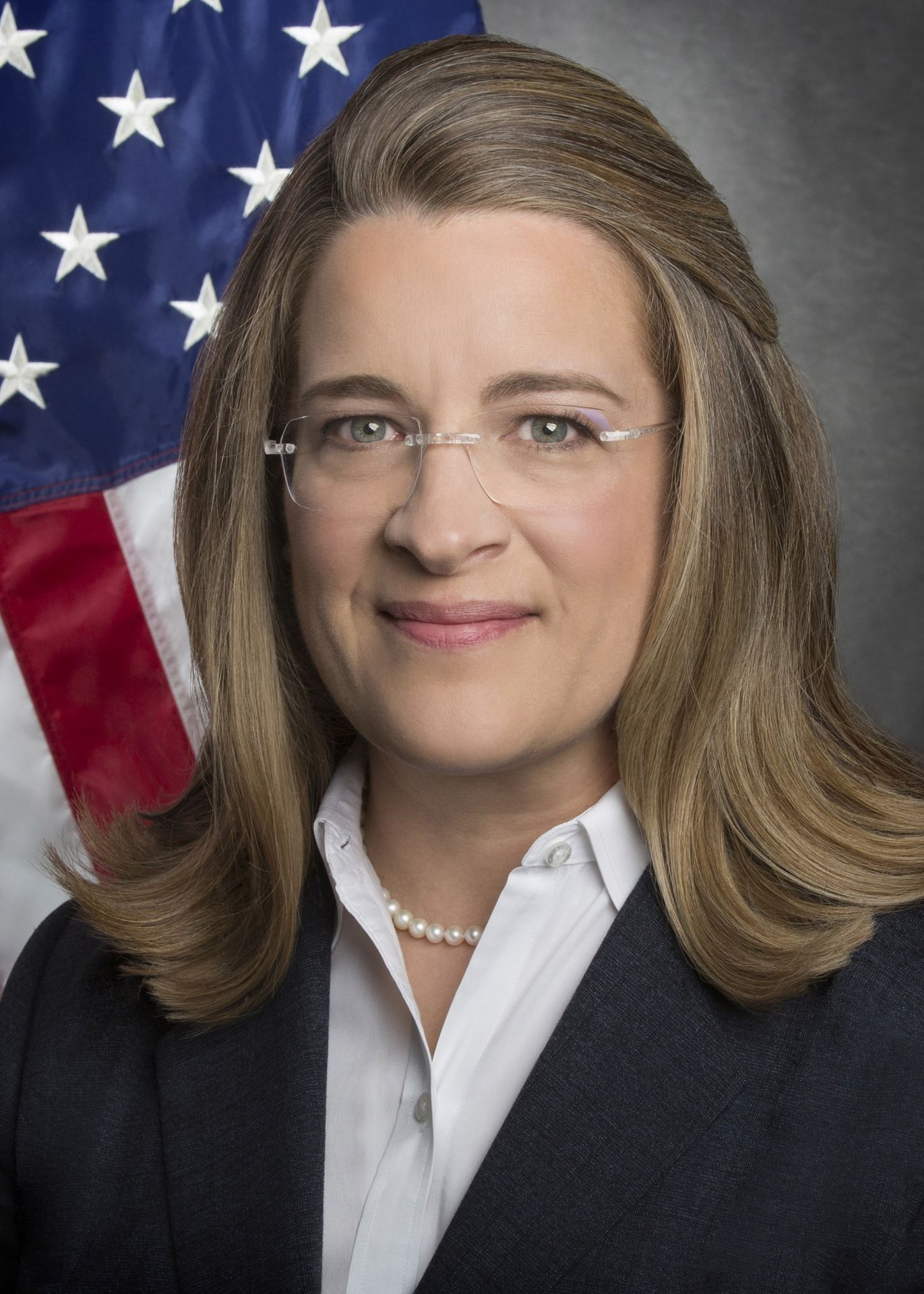Framatome’s GAIA fuel assembly with Protect EATF technologies. (Photo: Framatome)
Framatome has completed the second 18-month cycle of its GAIA Protect Enhanced Accident Tolerant Fuel (EATF) technology at Vogtle’s Unit 2 in Waynesboro, Ga. Inspections afterward revealed that the full-length chromium-coated fuel rods maintained their original characteristics, while the chromia-enhanced pellets operated as designed during 36 months of reactor operation.
Vogtle Unit 3 in September. (Photo: Georgia Power)
Georgia Power announced this morning that fuel loading at Vogtle-3 has commenced, marking an important milestone on what has proved to be a long and bumpy road to startup and commercial operation of the first new nuclear power reactors to be built in the United States in more than three decades. (Major work on the Vogtle-3 and -4 project began in 2012, with a price tag of $14 billion and scheduled unit start dates of 2016 and 2017. The project’s total cost is now expected to exceed $30 billion.)
Unit 3 at the Vogtle site in July 2022. (Photo: Georgia Power)
The Nuclear Regulatory Commission has authorized Vogtle plant operator Southern Nuclear to load fuel and begin operation at Unit 3—the first reactor to reach this point in the agency’s combined license process. (Prior to 1989, reactors were licensed under a two-step process, requiring both a construction permit and an operating license.)
Vogtle Units 3 and 4, with Units 1 and 2 in the background. (Photo: Georgia Power)
Both Oglethorpe Power Corporation and the Municipal Electric Authority of Georgia (MEAG), two co-owners of the Vogtle nuclear plant, have filed lawsuits against Southern Company subsidiary Georgia Power, the facility’s primary owner.
Oglethorpe and MEAG are 30 percent and 22.7 percent owners, respectively, of Vogtle. Georgia Power holds a 45.7 percent share. (Dalton Utilities, which owns 1.6 percent of the plant, is not involved in the suits.)
The Vogtle-4 diesel generator building in March. (Photo: Georgia Power)
The total bill for the reactor expansion project at the Vogtle nuclear plant in Georgia is now expected to exceed $30 billion, according to the Associated Press. The original price tag for the two Westinghouse AP1000 units was $14 billion.
Fuel preparing to be unloaded outside of Vogtle-3 last month. (Photo: Georgia Power)
Commercial operation dates for the two new reactors under construction at the Vogtle nuclear plant have been pushed back yet again, adding to the project’s total cost, Southern Company announced last week. The Vogtle plant is near Waynesboro, Ga.
During its February 17 fourth-quarter earnings call, Southern reported that the projected start dates for both reactors were being extended by three to six months. Vogtle-3 is now expected to begin providing electricity to Georgians in the fourth quarter of 2022 or first quarter of 2023, with Vogtle-4 coming on line in the third or fourth quarter of 2023.
In a photo from November 2021, the Vogtle plant’s Unit 4 is in the foreground, and Unit 3 is in the center. Units 1 and 2, which entered service in the 1980s, are shown at the top of the photo. (Photo: Georgia Power)
A spokesperson for Georgia Power has confirmed that the projected in-service date for the new Vogtle-3 reactor remains the third quarter of 2022, according to an article published on January 27 on the Power magazine website. The in-service date for Vogtle-4 is targeted for the second quarter of 2023, the spokesperson said.
ADOPT fuel pellets developed by Westinghouse through the DOE's Accident Tolerant Fuel Program. (Photo: Westinghouse)
Westinghouse Electric Company and Southern Nuclear have agreed to a plan to install four Westinghouse lead test assemblies in Vogtle-2, a 1,169-MWe pressurized water reactor located in Waynesboro, Ga. Four lead test assemblies containing uranium enriched up to 6 percent U-235 will be loaded in Vogtle-2 in 2023, marking the first time that fuel rods with uranium enriched above 5 percent U-235 are put in use in a U.S. commercial power reactor.
Vogtle Units 3 (in foreground) and 4, in November. (Photo: Georgia Power)
Georgia Power has revised the projected commercial operation dates for Vogtle-3 and -4 a total of four times this year—most recently in October—but some experts are saying that at least one more delay is probable.
The Vogtle-3 turbine building (left) and containment (right) in October. (Photo: Georgia Power)
The Nuclear Regulatory Commission will increase its oversight of Vogtle-3—one of the two Westinghouse AP1000 reactors under construction at the Vogtle nuclear power plant in Waynesboro, Ga.—after finalizing two inspection findings involving the unit’s safety-related electrical cable raceway system. Vogtle’s operator, Southern Nuclear, was informed of the decision in a November 17 letter.
The agency had launched a special inspection at Vogtle-3 in June of this year to determine the cause and extent of construction quality issues in the raceway system, which consists primarily of conduits and cable trays designed to prevent a single event from disabling redundant safety-related equipment.
Vogtle-4 containment as it appeared last month. Photo: Georgia Power
In what has become for nuclear advocates an all-too-familiar refrain, Georgia Power has made another revision to the Vogtle nuclear expansion project schedule. The company now predicts a Unit 3 in-service date in the third quarter of 2022 and a Unit 4 in-service date in the second quarter of 2023, representing a three-month shift for each unit.
Vogtle-3 (left) and -4 in June. (Photo: Georgia Power)
Oversight of the Vogtle nuclear new-build project will be increased if the preliminary conclusions in an August 26 Nuclear Regulatory Commission special inspection report are finalized.
Conducted from June 21 to July 2, the inspection looked into the cause and extent of construction-quality issues in the safety-related electrical cable raceway system at Vogtle-3.
Vogtle Units 3 and 4, earlier this month. (Photo: Georgia Power)
Georgia Power yesterday announced that due to 'productivity challenges' and the need for 'additional time for testing and quality assurance,' it has revised the schedule for the Vogtle-3 and -4 nuclear expansion project. The new schedule pushes back the Unit 3 in-service date to the second quarter of 2022 and the Unit 4 date to the first quarter of 2023—a three-to-four-month shift for each unit.
Vogtle’s Unit 3, earlier this month. Photo: Georgia Power
The Nuclear Regulatory Commission has launched a special inspection at the Vogtle new-build site to identify the errors that necessitated construction remediation work on Unit 3’s electrical cable raceway system.
Vogtle-3’s containment (right) and turbine building (left) in May. Photo: Georgia Power
Georgia Power recently pushed back its projected commercial operation date for Vogtle-3 from December of this year to January 2022, but now some engineering and financial experts are saying that this revised date is too optimistic.



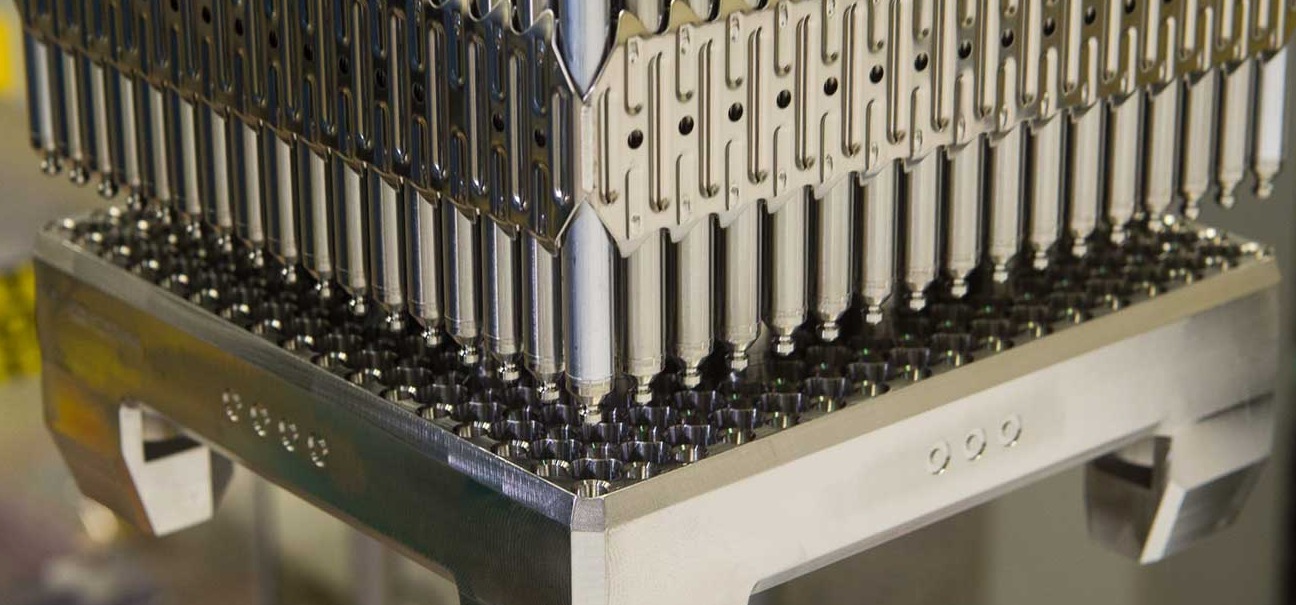

 The Nuclear Regulatory Commission last Friday announced the publication of its
The Nuclear Regulatory Commission last Friday announced the publication of its 




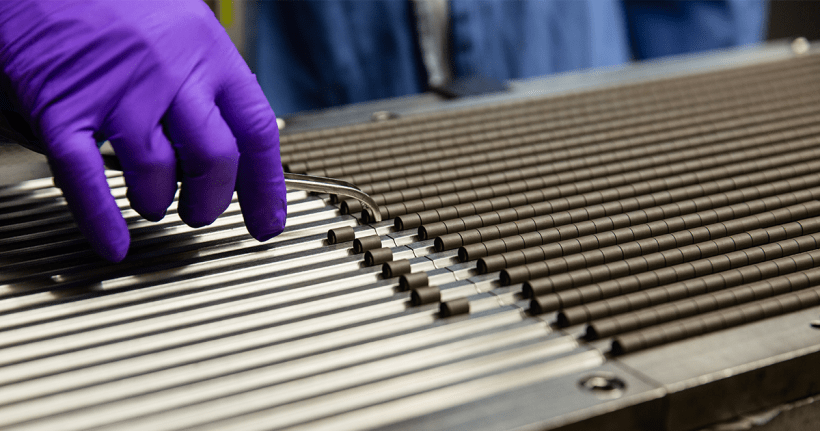


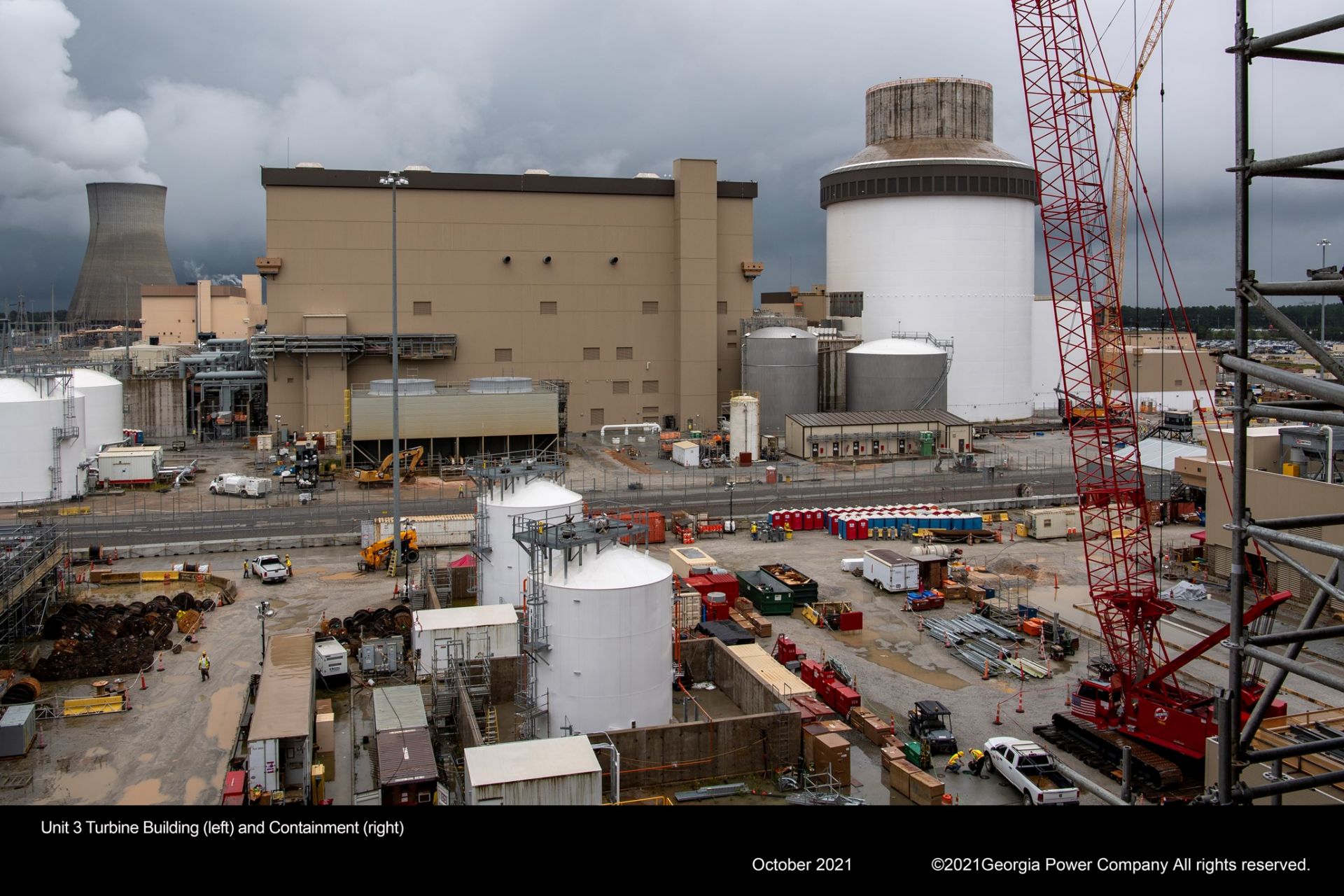 and containment (right).jpg)

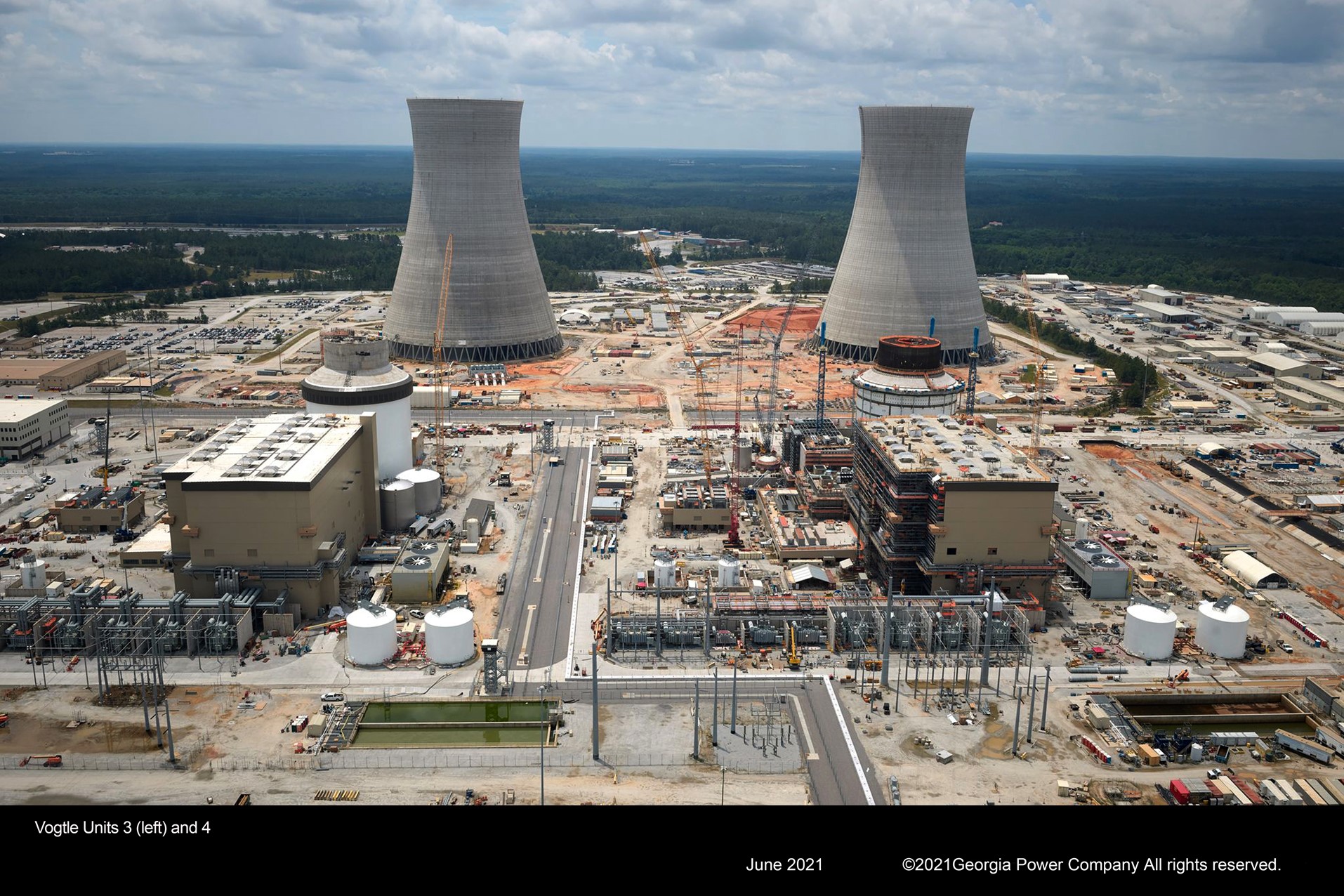 and -4.jpg)

